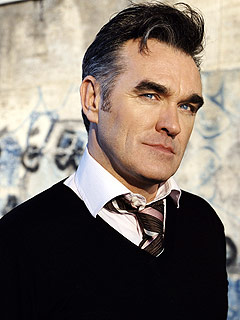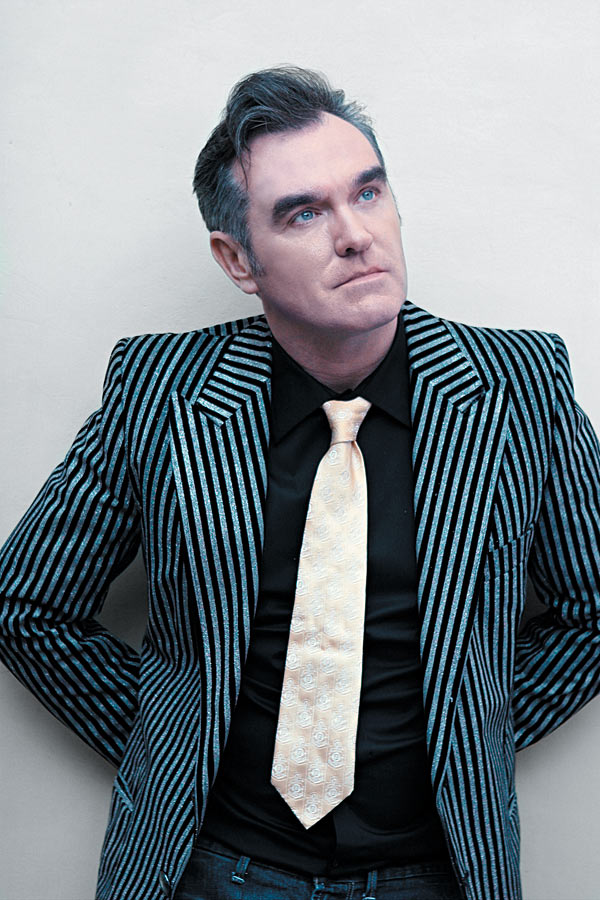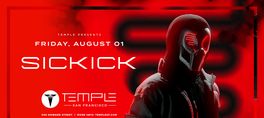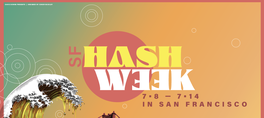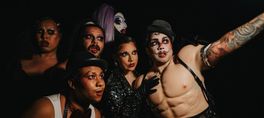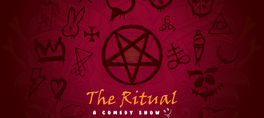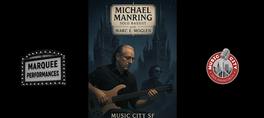Steven Patrick Morrissey, known as Morrissey, is an English singer and lyricist. He rose to prominence in the 1980s as the lyricist and vocalist of the alternative rock band The Smiths. The band was highly successful in the United Kingdom but broke up in 1987, and Morrissey began a solo career, making the top ten of the UK Singles Chart on ten occasions. Widely regarded as an important innovator in indie music, Morrissey has been described by music magazine NME as "one of the most influential artists ever," and The Independent has stated "most pop stars have to be dead before they reach the iconic status he has reached in his lifetime." Pitchfork Media has called him "one of the most singular figures in Western popular culture from the last twenty years."
Morrissey's lyrics have been described as "dramatic, bleak, funny vignettes about doomed relationships, lonely nightclubs, the burden of the past and the prison of the home." He is also noted for his unique baritone vocal style (though he sometimes uses falsetto), his quiff haircut and his dynamic live performances. His forthright, often contrarian opinions, especially on the subject of race, have led to a number of media controversies, and he has also attracted media attention for his advocacy of vegetarianism and animal rights.
-- wikipedia
---------
https://www.facebook.com/Morrissey
---------
"As the lead singer of the Smiths, arguably the most important indie band in Britain during the '80s, Morrissey's theatrical crooning and literate, poetic lyrics -- filled with romantic angst, social alienation, and cutting wit -- connected powerfully with a legion of similarly sensitive, disaffected youth. These fans turned The Smiths into stars in Britain, exerting tremendous pull over much of the country's guitar-based music for many years after their breakup, and even if the group remained underground cult artists in the States, they had a fanbase that slowly, steadily grew larger over the years. Indeed, a few years after The Smiths's breakup in 1987, Morrissey's American cult had grown to the point where he became more popular in the U.S. than in his homeland, where he neverthless was never far from the music press headlines. After a quiet period around the turn of the millennium, Morrissey launched a comeback in 2004 with You Are the Quarry, an album whose success proved that he remained one of the most beloved figures in alternative rock.
Stephen Patrick Morrissey was born May 22, 1959, in Manchester, England; not surprisingly a shy, awkward youth, he became obsessed with music and film as a teenager and devoted his writing talents to penning a New York Dolls fanzine (he was the president of their U.K. fan club), as well as a tribute to James Dean and numerous opinionated letters to the weekly music paper Melody Maker. During the explosion of punk in the late '70s, Morrissey unsuccessfully auditioned for Slaughter & the Dogs and sang for a brief period with a band called the Nosebleeds. He met guitarist Johnny Marr in 1982 and the two began writing songs together, forging one of the most productive partnerships British pop had seen in quite some time. The Smiths' 1983 debut single, "Hand in Glove," a love song filled with oblique references to homosexuality, made them an underground sensation in the U.K. and as Morrissey attracted more attention, he demonstrated a flair for manipulating the media. His interviews were filled with blunt, unpredictable opinions and intentionally outrageous statements and his notoriety wasn't hurt by his stage presence (he performed wearing a hearing aid with flowers sticking out of his back pockets) or his self-proclaimed celibacy in the wake of much speculation about his sexuality.
Possessed of a darkly cynical bent as a lyricist, he was often misinterpreted as advocating some of the more disturbing things he sang about, which only added to the furor surrounding the band. The Smiths' eponymous 1984 debut was a smash in the U.K. and in its wake, Morrissey began promoting his political views, heavily criticizing Margaret Thatcher, and advocating vegetarianism (hence the title of the follow-up LP, Meat Is Murder). The Queen Is Dead (1986) was acclaimed as a masterpiece, but friction between Morrissey and Marr was growing. Marr departed after 1987's Strangeways, Here We Come and Morrissey broke up the rest of the band to begin a solo career.
Feeling betrayed by Marr's defection, Morrissey channeled his frustration into creating new material with producer Stephen Street. His first two solo singles, "Suedehead" and the gorgeous "Everyday Is Like Sunday," were significant British hits in 1988 and his first album, Viva Hate (its title a reference to the Smiths' breakup), was commercially and critically well received. He released several more high-quality singles, including "The Last of the International Playboys" and "Interesting Drug," but spent an inordinate amount of time laboring on the follow-up album, issuing the stopgap compilation Bona Drag in 1990. In the meantime, the Madchester fad was sweeping British indie music and when the lackluster Kill Uncle was finally released in 1991, it only magnified the disappointment. U.K. reviewers took Morrissey to task, suggesting that the record marked the end of his glory days and that he would never be able to match the songs he'd written in tandem with Marr.
A misperceived flirtation with British nationalism (not helped by a couple of seemingly racial caricatures in recent songs) tarnished his image even more in the U.K. press during 1992, this coming amid even more frequent reports of feuds with his managers, business associates, and ex-bandmates. All the controversy overshadowed the fact that 1992's Mick Ronson-produced Your Arsenal was a smashing return to form; Morrissey used his new guitar tandem of Alain Whyte (who co-wrote much of the material) and Boz Boorer (formerly of rockabilly revivalists the Polecats) to full advantage in crafting a crunchy, glammed-up record. It easily ranked as the hardest-rocking of his career. Meanwhile, over in the U.S., tickets for his upcoming tour were selling like hotcakes and he managed to sell out L.A.'s Hollywood Bowl even faster than the Beatles had.
His confidence renewed by his American success (to the point where he permanently moved to Los Angeles), Morrissey delivered an equally strong follow-up in 1994's calmer Vauxhall and I, which even got him his first Top 50 singles chart entry in the U.S. with the MTV-supported "The More You Ignore Me, the Closer I Get." A hit-and-miss compilation, The World of Morrissey, followed in 1995, after which he switched labels (from Sire to RCA) for the first time since the Smiths' debut album. Also issued in 1995 was the prog rock-informed Southpaw Grammar, which confounded many and perhaps prevented him from expanding his American audience past a now-sizable group of longtime listeners. In 1996, he moved to another new label, this time Island, and released Maladjusted the following year. It failed to sell well outside of his most fanatical followers and his relationship with Island ended in 1998.
In the years that followed, Morrissey remained a massively popular touring attraction on the strength of his singular identity, despite the fact that he had yet to land another record deal. Finally, he signed his Attack label to Sanctuary, and released his first studio album in seven years, 2004's You Are the Quarry. The concert recording Live at Earls Court followed one year later. His second full-length for Sanctuary, Ringleader of the Tormentors was produced by Tony Visconti (T. Rex, David Bowie) and released in spring 2006."
-Steve Huey, All Music Guide
show less
Morrissey's lyrics have been described as "dramatic, bleak, funny vignettes about doomed relationships, lonely nightclubs, the burden of the past and the prison of the home." He is also noted for his unique baritone vocal style (though he sometimes uses falsetto), his quiff haircut and his dynamic live performances. His forthright, often contrarian opinions, especially on the subject of race, have led to a number of media controversies, and he has also attracted media attention for his advocacy of vegetarianism and animal rights.
-- wikipedia
---------
https://www.facebook.com/Morrissey
---------
"As the lead singer of the Smiths, arguably the most important indie band in Britain during the '80s, Morrissey's theatrical crooning and literate, poetic lyrics -- filled with romantic angst, social alienation, and cutting wit -- connected powerfully with a legion of similarly sensitive, disaffected youth. These fans turned The Smiths into stars in Britain, exerting tremendous pull over much of the country's guitar-based music for many years after their breakup, and even if the group remained underground cult artists in the States, they had a fanbase that slowly, steadily grew larger over the years. Indeed, a few years after The Smiths's breakup in 1987, Morrissey's American cult had grown to the point where he became more popular in the U.S. than in his homeland, where he neverthless was never far from the music press headlines. After a quiet period around the turn of the millennium, Morrissey launched a comeback in 2004 with You Are the Quarry, an album whose success proved that he remained one of the most beloved figures in alternative rock.
Stephen Patrick Morrissey was born May 22, 1959, in Manchester, England; not surprisingly a shy, awkward youth, he became obsessed with music and film as a teenager and devoted his writing talents to penning a New York Dolls fanzine (he was the president of their U.K. fan club), as well as a tribute to James Dean and numerous opinionated letters to the weekly music paper Melody Maker. During the explosion of punk in the late '70s, Morrissey unsuccessfully auditioned for Slaughter & the Dogs and sang for a brief period with a band called the Nosebleeds. He met guitarist Johnny Marr in 1982 and the two began writing songs together, forging one of the most productive partnerships British pop had seen in quite some time. The Smiths' 1983 debut single, "Hand in Glove," a love song filled with oblique references to homosexuality, made them an underground sensation in the U.K. and as Morrissey attracted more attention, he demonstrated a flair for manipulating the media. His interviews were filled with blunt, unpredictable opinions and intentionally outrageous statements and his notoriety wasn't hurt by his stage presence (he performed wearing a hearing aid with flowers sticking out of his back pockets) or his self-proclaimed celibacy in the wake of much speculation about his sexuality.
Possessed of a darkly cynical bent as a lyricist, he was often misinterpreted as advocating some of the more disturbing things he sang about, which only added to the furor surrounding the band. The Smiths' eponymous 1984 debut was a smash in the U.K. and in its wake, Morrissey began promoting his political views, heavily criticizing Margaret Thatcher, and advocating vegetarianism (hence the title of the follow-up LP, Meat Is Murder). The Queen Is Dead (1986) was acclaimed as a masterpiece, but friction between Morrissey and Marr was growing. Marr departed after 1987's Strangeways, Here We Come and Morrissey broke up the rest of the band to begin a solo career.
Feeling betrayed by Marr's defection, Morrissey channeled his frustration into creating new material with producer Stephen Street. His first two solo singles, "Suedehead" and the gorgeous "Everyday Is Like Sunday," were significant British hits in 1988 and his first album, Viva Hate (its title a reference to the Smiths' breakup), was commercially and critically well received. He released several more high-quality singles, including "The Last of the International Playboys" and "Interesting Drug," but spent an inordinate amount of time laboring on the follow-up album, issuing the stopgap compilation Bona Drag in 1990. In the meantime, the Madchester fad was sweeping British indie music and when the lackluster Kill Uncle was finally released in 1991, it only magnified the disappointment. U.K. reviewers took Morrissey to task, suggesting that the record marked the end of his glory days and that he would never be able to match the songs he'd written in tandem with Marr.
A misperceived flirtation with British nationalism (not helped by a couple of seemingly racial caricatures in recent songs) tarnished his image even more in the U.K. press during 1992, this coming amid even more frequent reports of feuds with his managers, business associates, and ex-bandmates. All the controversy overshadowed the fact that 1992's Mick Ronson-produced Your Arsenal was a smashing return to form; Morrissey used his new guitar tandem of Alain Whyte (who co-wrote much of the material) and Boz Boorer (formerly of rockabilly revivalists the Polecats) to full advantage in crafting a crunchy, glammed-up record. It easily ranked as the hardest-rocking of his career. Meanwhile, over in the U.S., tickets for his upcoming tour were selling like hotcakes and he managed to sell out L.A.'s Hollywood Bowl even faster than the Beatles had.
His confidence renewed by his American success (to the point where he permanently moved to Los Angeles), Morrissey delivered an equally strong follow-up in 1994's calmer Vauxhall and I, which even got him his first Top 50 singles chart entry in the U.S. with the MTV-supported "The More You Ignore Me, the Closer I Get." A hit-and-miss compilation, The World of Morrissey, followed in 1995, after which he switched labels (from Sire to RCA) for the first time since the Smiths' debut album. Also issued in 1995 was the prog rock-informed Southpaw Grammar, which confounded many and perhaps prevented him from expanding his American audience past a now-sizable group of longtime listeners. In 1996, he moved to another new label, this time Island, and released Maladjusted the following year. It failed to sell well outside of his most fanatical followers and his relationship with Island ended in 1998.
In the years that followed, Morrissey remained a massively popular touring attraction on the strength of his singular identity, despite the fact that he had yet to land another record deal. Finally, he signed his Attack label to Sanctuary, and released his first studio album in seven years, 2004's You Are the Quarry. The concert recording Live at Earls Court followed one year later. His second full-length for Sanctuary, Ringleader of the Tormentors was produced by Tony Visconti (T. Rex, David Bowie) and released in spring 2006."
-Steve Huey, All Music Guide
Steven Patrick Morrissey, known as Morrissey, is an English singer and lyricist. He rose to prominence in the 1980s as the lyricist and vocalist of the alternative rock band The Smiths. The band was highly successful in the United Kingdom but broke up in 1987, and Morrissey began a solo career, making the top ten of the UK Singles Chart on ten occasions. Widely regarded as an important innovator in indie music, Morrissey has been described by music magazine NME as "one of the most influential artists ever," and The Independent has stated "most pop stars have to be dead before they reach the iconic status he has reached in his lifetime." Pitchfork Media has called him "one of the most singular figures in Western popular culture from the last twenty years."
Morrissey's lyrics have been described as "dramatic, bleak, funny vignettes about doomed relationships, lonely nightclubs, the burden of the past and the prison of the home." He is also noted for his unique baritone vocal style (though he sometimes uses falsetto), his quiff haircut and his dynamic live performances. His forthright, often contrarian opinions, especially on the subject of race, have led to a number of media controversies, and he has also attracted media attention for his advocacy of vegetarianism and animal rights.
-- wikipedia
---------
https://www.facebook.com/Morrissey
---------
"As the lead singer of the Smiths, arguably the most important indie band in Britain during the '80s, Morrissey's theatrical crooning and literate, poetic lyrics -- filled with romantic angst, social alienation, and cutting wit -- connected powerfully with a legion of similarly sensitive, disaffected youth. These fans turned The Smiths into stars in Britain, exerting tremendous pull over much of the country's guitar-based music for many years after their breakup, and even if the group remained underground cult artists in the States, they had a fanbase that slowly, steadily grew larger over the years. Indeed, a few years after The Smiths's breakup in 1987, Morrissey's American cult had grown to the point where he became more popular in the U.S. than in his homeland, where he neverthless was never far from the music press headlines. After a quiet period around the turn of the millennium, Morrissey launched a comeback in 2004 with You Are the Quarry, an album whose success proved that he remained one of the most beloved figures in alternative rock.
Stephen Patrick Morrissey was born May 22, 1959, in Manchester, England; not surprisingly a shy, awkward youth, he became obsessed with music and film as a teenager and devoted his writing talents to penning a New York Dolls fanzine (he was the president of their U.K. fan club), as well as a tribute to James Dean and numerous opinionated letters to the weekly music paper Melody Maker. During the explosion of punk in the late '70s, Morrissey unsuccessfully auditioned for Slaughter & the Dogs and sang for a brief period with a band called the Nosebleeds. He met guitarist Johnny Marr in 1982 and the two began writing songs together, forging one of the most productive partnerships British pop had seen in quite some time. The Smiths' 1983 debut single, "Hand in Glove," a love song filled with oblique references to homosexuality, made them an underground sensation in the U.K. and as Morrissey attracted more attention, he demonstrated a flair for manipulating the media. His interviews were filled with blunt, unpredictable opinions and intentionally outrageous statements and his notoriety wasn't hurt by his stage presence (he performed wearing a hearing aid with flowers sticking out of his back pockets) or his self-proclaimed celibacy in the wake of much speculation about his sexuality.
Possessed of a darkly cynical bent as a lyricist, he was often misinterpreted as advocating some of the more disturbing things he sang about, which only added to the furor surrounding the band. The Smiths' eponymous 1984 debut was a smash in the U.K. and in its wake, Morrissey began promoting his political views, heavily criticizing Margaret Thatcher, and advocating vegetarianism (hence the title of the follow-up LP, Meat Is Murder). The Queen Is Dead (1986) was acclaimed as a masterpiece, but friction between Morrissey and Marr was growing. Marr departed after 1987's Strangeways, Here We Come and Morrissey broke up the rest of the band to begin a solo career.
Feeling betrayed by Marr's defection, Morrissey channeled his frustration into creating new material with producer Stephen Street. His first two solo singles, "Suedehead" and the gorgeous "Everyday Is Like Sunday," were significant British hits in 1988 and his first album, Viva Hate (its title a reference to the Smiths' breakup), was commercially and critically well received. He released several more high-quality singles, including "The Last of the International Playboys" and "Interesting Drug," but spent an inordinate amount of time laboring on the follow-up album, issuing the stopgap compilation Bona Drag in 1990. In the meantime, the Madchester fad was sweeping British indie music and when the lackluster Kill Uncle was finally released in 1991, it only magnified the disappointment. U.K. reviewers took Morrissey to task, suggesting that the record marked the end of his glory days and that he would never be able to match the songs he'd written in tandem with Marr.
A misperceived flirtation with British nationalism (not helped by a couple of seemingly racial caricatures in recent songs) tarnished his image even more in the U.K. press during 1992, this coming amid even more frequent reports of feuds with his managers, business associates, and ex-bandmates. All the controversy overshadowed the fact that 1992's Mick Ronson-produced Your Arsenal was a smashing return to form; Morrissey used his new guitar tandem of Alain Whyte (who co-wrote much of the material) and Boz Boorer (formerly of rockabilly revivalists the Polecats) to full advantage in crafting a crunchy, glammed-up record. It easily ranked as the hardest-rocking of his career. Meanwhile, over in the U.S., tickets for his upcoming tour were selling like hotcakes and he managed to sell out L.A.'s Hollywood Bowl even faster than the Beatles had.
His confidence renewed by his American success (to the point where he permanently moved to Los Angeles), Morrissey delivered an equally strong follow-up in 1994's calmer Vauxhall and I, which even got him his first Top 50 singles chart entry in the U.S. with the MTV-supported "The More You Ignore Me, the Closer I Get." A hit-and-miss compilation, The World of Morrissey, followed in 1995, after which he switched labels (from Sire to RCA) for the first time since the Smiths' debut album. Also issued in 1995 was the prog rock-informed Southpaw Grammar, which confounded many and perhaps prevented him from expanding his American audience past a now-sizable group of longtime listeners. In 1996, he moved to another new label, this time Island, and released Maladjusted the following year. It failed to sell well outside of his most fanatical followers and his relationship with Island ended in 1998.
In the years that followed, Morrissey remained a massively popular touring attraction on the strength of his singular identity, despite the fact that he had yet to land another record deal. Finally, he signed his Attack label to Sanctuary, and released his first studio album in seven years, 2004's You Are the Quarry. The concert recording Live at Earls Court followed one year later. His second full-length for Sanctuary, Ringleader of the Tormentors was produced by Tony Visconti (T. Rex, David Bowie) and released in spring 2006."
-Steve Huey, All Music Guide
read more
Morrissey's lyrics have been described as "dramatic, bleak, funny vignettes about doomed relationships, lonely nightclubs, the burden of the past and the prison of the home." He is also noted for his unique baritone vocal style (though he sometimes uses falsetto), his quiff haircut and his dynamic live performances. His forthright, often contrarian opinions, especially on the subject of race, have led to a number of media controversies, and he has also attracted media attention for his advocacy of vegetarianism and animal rights.
-- wikipedia
---------
https://www.facebook.com/Morrissey
---------
"As the lead singer of the Smiths, arguably the most important indie band in Britain during the '80s, Morrissey's theatrical crooning and literate, poetic lyrics -- filled with romantic angst, social alienation, and cutting wit -- connected powerfully with a legion of similarly sensitive, disaffected youth. These fans turned The Smiths into stars in Britain, exerting tremendous pull over much of the country's guitar-based music for many years after their breakup, and even if the group remained underground cult artists in the States, they had a fanbase that slowly, steadily grew larger over the years. Indeed, a few years after The Smiths's breakup in 1987, Morrissey's American cult had grown to the point where he became more popular in the U.S. than in his homeland, where he neverthless was never far from the music press headlines. After a quiet period around the turn of the millennium, Morrissey launched a comeback in 2004 with You Are the Quarry, an album whose success proved that he remained one of the most beloved figures in alternative rock.
Stephen Patrick Morrissey was born May 22, 1959, in Manchester, England; not surprisingly a shy, awkward youth, he became obsessed with music and film as a teenager and devoted his writing talents to penning a New York Dolls fanzine (he was the president of their U.K. fan club), as well as a tribute to James Dean and numerous opinionated letters to the weekly music paper Melody Maker. During the explosion of punk in the late '70s, Morrissey unsuccessfully auditioned for Slaughter & the Dogs and sang for a brief period with a band called the Nosebleeds. He met guitarist Johnny Marr in 1982 and the two began writing songs together, forging one of the most productive partnerships British pop had seen in quite some time. The Smiths' 1983 debut single, "Hand in Glove," a love song filled with oblique references to homosexuality, made them an underground sensation in the U.K. and as Morrissey attracted more attention, he demonstrated a flair for manipulating the media. His interviews were filled with blunt, unpredictable opinions and intentionally outrageous statements and his notoriety wasn't hurt by his stage presence (he performed wearing a hearing aid with flowers sticking out of his back pockets) or his self-proclaimed celibacy in the wake of much speculation about his sexuality.
Possessed of a darkly cynical bent as a lyricist, he was often misinterpreted as advocating some of the more disturbing things he sang about, which only added to the furor surrounding the band. The Smiths' eponymous 1984 debut was a smash in the U.K. and in its wake, Morrissey began promoting his political views, heavily criticizing Margaret Thatcher, and advocating vegetarianism (hence the title of the follow-up LP, Meat Is Murder). The Queen Is Dead (1986) was acclaimed as a masterpiece, but friction between Morrissey and Marr was growing. Marr departed after 1987's Strangeways, Here We Come and Morrissey broke up the rest of the band to begin a solo career.
Feeling betrayed by Marr's defection, Morrissey channeled his frustration into creating new material with producer Stephen Street. His first two solo singles, "Suedehead" and the gorgeous "Everyday Is Like Sunday," were significant British hits in 1988 and his first album, Viva Hate (its title a reference to the Smiths' breakup), was commercially and critically well received. He released several more high-quality singles, including "The Last of the International Playboys" and "Interesting Drug," but spent an inordinate amount of time laboring on the follow-up album, issuing the stopgap compilation Bona Drag in 1990. In the meantime, the Madchester fad was sweeping British indie music and when the lackluster Kill Uncle was finally released in 1991, it only magnified the disappointment. U.K. reviewers took Morrissey to task, suggesting that the record marked the end of his glory days and that he would never be able to match the songs he'd written in tandem with Marr.
A misperceived flirtation with British nationalism (not helped by a couple of seemingly racial caricatures in recent songs) tarnished his image even more in the U.K. press during 1992, this coming amid even more frequent reports of feuds with his managers, business associates, and ex-bandmates. All the controversy overshadowed the fact that 1992's Mick Ronson-produced Your Arsenal was a smashing return to form; Morrissey used his new guitar tandem of Alain Whyte (who co-wrote much of the material) and Boz Boorer (formerly of rockabilly revivalists the Polecats) to full advantage in crafting a crunchy, glammed-up record. It easily ranked as the hardest-rocking of his career. Meanwhile, over in the U.S., tickets for his upcoming tour were selling like hotcakes and he managed to sell out L.A.'s Hollywood Bowl even faster than the Beatles had.
His confidence renewed by his American success (to the point where he permanently moved to Los Angeles), Morrissey delivered an equally strong follow-up in 1994's calmer Vauxhall and I, which even got him his first Top 50 singles chart entry in the U.S. with the MTV-supported "The More You Ignore Me, the Closer I Get." A hit-and-miss compilation, The World of Morrissey, followed in 1995, after which he switched labels (from Sire to RCA) for the first time since the Smiths' debut album. Also issued in 1995 was the prog rock-informed Southpaw Grammar, which confounded many and perhaps prevented him from expanding his American audience past a now-sizable group of longtime listeners. In 1996, he moved to another new label, this time Island, and released Maladjusted the following year. It failed to sell well outside of his most fanatical followers and his relationship with Island ended in 1998.
In the years that followed, Morrissey remained a massively popular touring attraction on the strength of his singular identity, despite the fact that he had yet to land another record deal. Finally, he signed his Attack label to Sanctuary, and released his first studio album in seven years, 2004's You Are the Quarry. The concert recording Live at Earls Court followed one year later. His second full-length for Sanctuary, Ringleader of the Tormentors was produced by Tony Visconti (T. Rex, David Bowie) and released in spring 2006."
-Steve Huey, All Music Guide
show less
Date/Times:
The Masonic
43 Upcoming Events
1111 California Street, San Francisco, CA 94108
The Best Events
Every Week in Your Inbox
From Our Sponsors
UPCOMING EVENTS
Great suggestion! We'll be in touch.
Event reviewed successfully.
